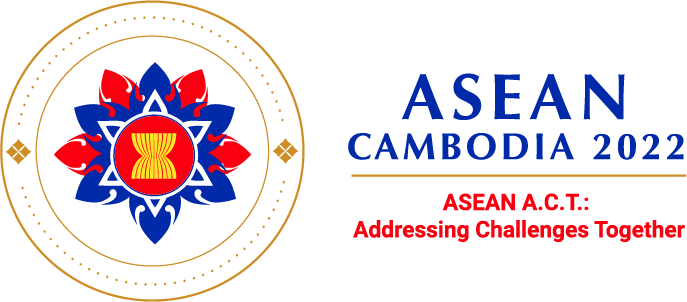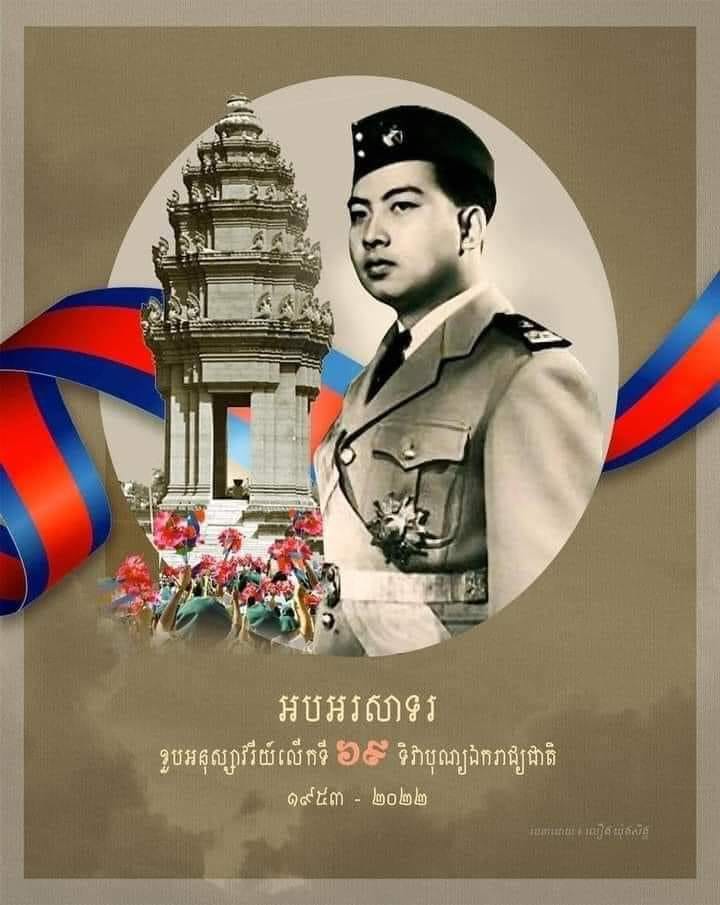No glimmers of democratic hope allowed in Cambodia
Op-Ed: Asia Time
PM Hun Sen threatening to ban opposition Candlelight Party ahead of 2023 elections in repressive redux of CNRP’s forced dissolution
By DAVID HUTTNOVEMBER 8, 2022
“I expect that Cambodia will hold off on the possible dissolution of the Candlelight Party until after the East Asia Summit to ensure that the Biden-Hun Sen meeting goes smoothly,” said Charles Dunst, an associate at The Asia Group, a Washington-based strategic advisory firm.
Yet there are also questions about how prepared the US would be to respond in the event of the opposition party’s dissolution.
As Prime Minister Hun Sen’s ruling Cambodian People’s Party (CPP) threatens to ban its latest opposition rival ahead of next year’s elections, the United States and European Union can be expected to toughen their existing sanctions on the nation’s democratic backsliding.
Western democracies imposed limited economic sanctions and other punitive measures against several Cambodian officials in response to the 2017 forced dissolution of the main opposition Cambodia National Rescue Party (CNRP) on dubious legal grounds.

Despite new engagement this year and with US President Joe Biden visiting Phnom Penh for the first time next week for a regional summit, Cambodia’s long-ruling prime minister has escalated his rhetorical attacks on the newly-reformed Candlelight Party, which emerged as the largest rival group at June’s local elections.
Hun Sen, who has been in power since 1985, has said the party could be banned ahead of next year’s general election because of its alleged links with exiled opposition figure Sam Rainsy, the Candlelight Party’s former leader.
Rainsy has been sentenced in absentia to numerous political charges and Hun Sen has prevented his attempts to return to the country from self-exile in France. The Candlelight Party denies any current links with him, despite being known as the Sam Rainsy Party until 2018.
The party was mostly disbanded in 2012 after Rainsy and most of its members merged with another opposition group to form the CNRP, which was forcibly dissolved on spurious accusations of plotting a US-backed coup.
“Any political party that links itself to the convict [Rainsy] will receive a complaint about it to the court. If a political party dares to attach itself to Sam Rainsy, they may face dissolution,” Hun Sen said on October 17.
A week later, he followed up with a more direct threat after Rainsy posted content on social media that allegedly defamed Cambodia’s monarch. “I want the Candlelight Party to clarify its stand on Sam Rainsy’s statement claiming the King has no conscience,” he stated, according to local media reports.
He added: “It isn’t a small story, and [it’s] not a joke…The Candlelight Party members must immediately defect to avoid any problem [because Sam Rainsy’s supporters in the party] want to topple the government and monarchy.”
Even before Hun Sen’s latest threats, the ruling CPP and the National Election Commission, a CPP-stacked body, sued the Candlelight Party’s vice-president Son Chhay for defamation over his comments made about irregularities at June’s local election. He was found guilty and ordered to pay around US$750,000 to the claimants in early October.

Hun Sen has slightly toned down his rhetoric in recent days after the Candlelight Party put out a public statement again denying association with Rainsy and critiquing his comments about the monarchy.
“If they had not done so, they would be facing problems. I stress again – no one shall link with that traitor,” Hun Sen said on October 29.
However, Hun Sen’s latest comments still carry the threat of dissolution and the country’s CPP-stacked courts would likely readily accept his legal justification for the party’s dissolution, even if the leader cannot provide any corroborating evidence, analysts say.
Kem Sokha, the CNRP president at the time of its ban, was arrested for treason in 2017 and his trial is ongoing, despite the prosecutors presenting very little evidence to substantiate the coup claims during hearings.
Analysts also reckon that Hun Sen won’t easily drop the idea of banning the Candlelight Party because it suits his political interests, especially as he seeks to secure the CPP’s electoral domination at next July’s ballot and steer through a dynastic succession.
“It’s clear the guardrails came off long ago in Phnom Penh: they just don’t care and will do anything required for regime survival,” said Sophal Ear, associate dean and associate professor at the Thunderbird School of Global Management at Arizona State University.
The main objective of the ruling CPP is now to ensure a smooth transfer of dynastic power, said Ear, referring to Hun Sen’s plans to hand over power to his eldest son, Hun Manet.
That succession has already been agreed by the ruling party’s decision-making bodies and some pundits reckon it could take place after next year’s general election, at which point Hun Manet would become prime minister and his father would take a more overarching role where he would continue to pull political strings.
Following the CNRP’s dissolution in 2017, the ruling CPP went on to win all 125 seats in the National Assembly at the 2018 general election, turning Cambodia into a de-facto one-party state. The US and European governments criticized the election as unfree and unfair.
In response, the EU partially cut Cambodia’s trade privileges while the US has imposed targeted sanctions on key Cambodian officials, including Cambodia’s navy chief, and hasn’t updated Cambodia’s place in its preferential trade scheme.
There would be “more acrimony” and targeted sanctions, and possibly an increase in the percentage of goods that lose their tariff- and quota-free access to European markets if the Candlelight Party is banned, Ear said. The EU cut trade privileges for around 20% of Cambodian exports under the Everything But Arms (EBA) preferential trade scheme in 2020.
“The European Union follows closely the situation in Cambodia. We are in contact with all relevant actors, including political parties,” an EU spokesperson told Asia Times.
“We continue our engagement with the Cambodian authorities, including on the preparations towards the 2023 elections and the space for political opposition to have a meaningful participation in this electoral process,” the EU spokesperson added. “A democratic electoral process requires that credible opposition is allowed to participate.”
The US State Department did not respond to Asia Times’ requests for comment, but analysts reckon Washington would react negatively if the Candlelight Party was forcibly dissolved.
“If Hun Sen dissolves the Candlelight Party it is going to lead to further outrage within the US Congress, especially among those members already extremely critical of Cambodia’s human rights record and democratic decline,” said Gregory Poling, director of the Southeast Asia Program at the Washington-based Center for Strategic and International Studies (CSIS).
It would make further legislative action, such as the proposed Cambodia Democracy Act, more likely to pass, Poling added.
It would also likely spell the end of any possibility of Washington renewing Cambodia’s place in its Generalized System of Preferences (GSP). Cambodia’s status in this preferential trade scheme elapsed at the end of 2020 and the US Congress has not authorized a renewal.
Dissolution of the Candlelight Party “will reaffirm the priors of those already extremely critical of the CPP regime, but probably wouldn’t change the thinking of those in the administration and Congress who believe that engagement is necessary,” said Poling.
However, it’s unlikely that Hun Sen will act immediately if he does indeed intend to shut down any meaningful opposition at next year’s election.
As ASEAN chair this year, Phnom Penh will host world leaders for the annual ASEAN and East Asia Summits next week. US President Biden has already confirmed that he’ll attend the meetings over two days.
“I expect that Cambodia will hold off on the possible dissolution of the Candlelight Party until after the East Asia Summit to ensure that the Biden-Hun Sen meeting goes smoothly,” said Charles Dunst, an associate at The Asia Group, a Washington-based strategic advisory firm.
Yet there are also questions about how prepared the US would be to respond in the event of the opposition party’s dissolution.
The US embassy is “basically in transition” at the moment because Ambassador W Patrick Murphy is expected to leave the post in coming months, with a new diplomat set to arrive early next year, although the timing will depend on the speed of the Senate confirmation hearings, a source told Asia Times.
Murphy, who was previously deputy assistant secretary of state for Southeast Asia, has been in place since 2019, making Cambodia rare in Asia for having a relatively long-serving US ambassador.
Apart from democracy concerns, Washington’s relations with Phnom Penh have largely soured over reports that Cambodia could host Chinese troops at its Ream Naval Base, the nation’s largest. The Cambodian government has repeatedly denied any secret deal that would potentially give China a new southern flank on the South China Sea.
There has been a noticeable dip in noise coming from Washington about the naval base concerns over the past 12 months, and some analysts reckon that the Biden administration is focused on restoring dialogue with Phnom Penh amid New Cold War tensions with China.
Nonetheless, Cambodia’s relations with the West “are unlikely to meaningfully improve any time soon,” Dunst said.
Follow David Hutt on Twitter at @davidhuttjourno

